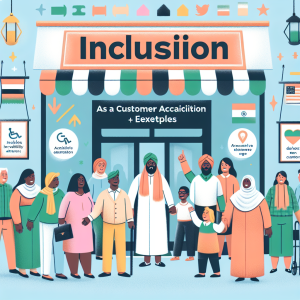Why the AI Industry Should Embrace Regulation Now
The rapid advancement of artificial intelligence (AI) has sparked a global debate: should we regulate it? While some perceive regulation as a barrier to innovation, the reality is far more nuanced. This article argues that the AI industry, far from fearing regulation, should actively welcome it – not for what it might prevent, but for the immense potential it unlocks.
H3: The Illusion of Stifled Innovation
A common argument against AI regulation is the fear of stifling innovation. However, this fear often stems from a misunderstanding of how regulation operates.
- Regulation Fosters Trust: Clear, well-defined regulations create a level playing field for developers and foster trust among consumers. This trust is crucial for widespread adoption of AI.
- Regulation Promotes Responsible Development: Regulation can encourage the ethical development and deployment of AI, mitigating potential risks and ensuring its benefits reach all of society.
- Regulation Prevents Overreach: By establishing clear boundaries, regulation prevents the misuse of AI and safeguards against potential harms.
H3: The Power of Proactive Engagement
The AI industry stands at a crossroads. It can choose to react defensively to regulations imposed upon it, or it can proactively engage in shaping the regulatory landscape.
- Collaboration, Not Confrontation: By working collaboratively with policymakers, the industry can ensure regulations are practical, flexible, and conducive to responsible innovation.
- A Seat at the Table: Active participation allows the AI industry to provide valuable technical expertise, guiding the development of regulations that are both effective and forward-thinking.
- Shaping the Future of AI: Engaging in the regulatory process empowers the AI industry to shape the future of its own development, ensuring its long-term sustainability and societal benefit.
H3: Embracing a Future Built on Trust and Transparency
The future of AI hinges on trust and transparency. Regulation, far from being an obstacle, can be a powerful catalyst in building this foundation.
- A Framework for Ethical Development: By establishing clear ethical guidelines, regulation provides a framework for responsible AI development, minimizing risks and maximizing societal benefit.
- Public Confidence and Adoption: Regulation fosters public confidence in AI technologies, encouraging wider adoption and unlocking its full economic and social potential.
- A Global Leader in Responsible AI: By embracing proactive regulation, the AI industry can position itself as a global leader in responsible AI development, setting the standard for others to follow.
In conclusion, the AI industry should view regulation not as a threat, but as an opportunity. By proactively engaging in the regulatory process, the industry can ensure AI flourishes responsibly, ethically, and for the benefit of all. Embracing regulation now is not about fearing what could be, but actively shaping a future where AI reaches its full potential, built on a foundation of trust and transparency.








